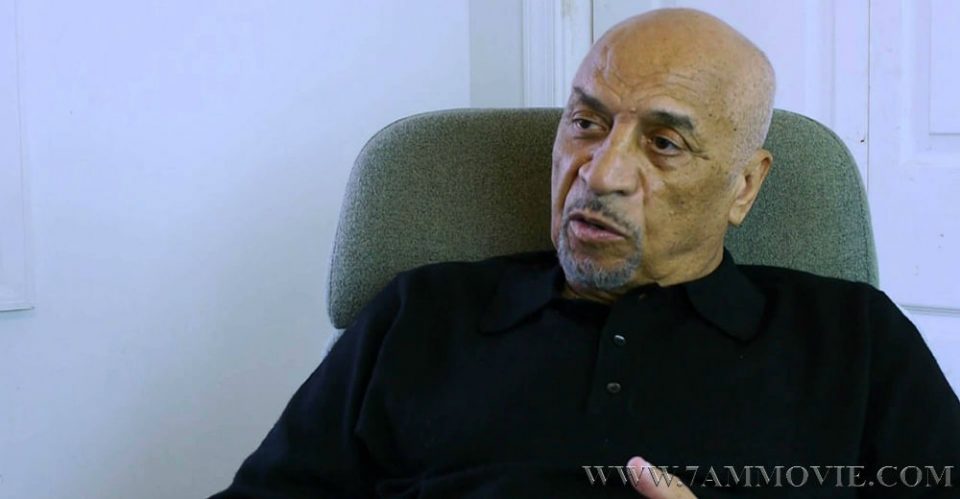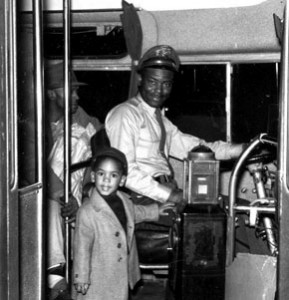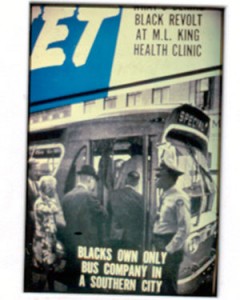“I want Black people to engage in, not in searching for rights, but I want them to search for resources. There is a major difference. Because there is no power in civil rights. There is no power in social integration. Both of those are weakening processes. If I pour water into gasoline I didn’t make it any stronger, I made it weaker. That’s why nobody else comes to this country looking to socially integrate and looking for civil rights with Black people. So that’s the bottom line.” – Dr. Claud Anderson
Dr. Claud Anderson is president of PowerNomics Corporation of America, Inc., The Harvest Institute and WaterLand Fisheries, Inc. His vast experience in government, politics, business and education has made him uniquely qualified to offer his comprehensive program to revitalize Black America: PowerNomics, which is described as “a new conceptual framework for understanding the issue of race and a guide for Blacks to become a more productive and competitive group within the American economy.”
His books Black Labor, White Wealth; PowerNomics: The National Plan; and Dirty Little Secrets about Black History continue to be sellers and his no nonsense lectures to business groups, universities, churches and social organizations offer hard hitting facts and crucial solutions.
Dr. Claud Anderson was born in the U.S. South (North and South Carolina). He grew up in a segregated environment where Black people owned and operated their own businesses. Although segregation is generally viewed as negative, Dr. Anderson sees it in another way:
“I grew up in the South where we owned things. My family had almost 1,500 acres down in South Carolina, but when we got to North Carolina, we were one of three families that owned the only bus companies you ever had in America. The Safe Bus Company in Winston Salem North Carolina. When I say bus company, you haven’t had any other bus companies. Our bus company was the only bus company you ever had. I don’t mean we had one or two buses. We had over 500 buses. And our buses serviced the Black neighborhoods and the white neighborhoods. In our bus company, all the drivers were Black, the mechanics were Black, the electricians were Black, the administration was Black and we serviced both the whites and the Black neighborhoods. What put us out of business was the Martin Luther King integrated buses down in Montgomery, Alabama and all of a sudden Black people were saying, ‘we want to ride in the front of white buses’. We said, ‘We don’t have any white buses in Winston Salem, North Carolina’. They said, ‘Why don’t you get some so we can sit on them.’”
Safe Bus Company
Growing up in this environment clearly contributed to Dr. Anderson’s racial pride and sense of self-determination and self-respect.
“One thing, it was just an observation as a kid. Not only did we have a bus line, but in our city, we stayed parallel to whites. We sought equality in terms of owning and controlling the resources. Whites had 2 cab companies; they had the Blue Bird and the Yellow Bird cab company. We had 2 cab companies: (one of them) the Harris cab company. They had their movie theatres. They had something about 3 movie theatres. We had 2. We had the Lincoln and the Lafayette theatres. They made their movies, we made ours. We weren’t trying to change white folks minds, white people hearts… make them love us. We weren’t seeking their love. Blacks spend all their lives seeking love and affection. (They) want someone to love them. Nobody wants to love Black people. Biggest thing they want is they want whites and everyone else to like ‘em. What they should be concerned with is to make people respect you and appreciate you. Nobody is going to respect you and appreciate you if you spend all your time kissing and hugging them… just to get a pork chop bone.”
However, it was far more personal events that pushed him in the mission he is on today.
“I’ve buried two members of my family that have been slaves. My grandmother had been a slave and my aunt had been a slave. She died at 114 and my grandmother was over one hundred, so I only had $250.00 to bury her and my grandmother (I asked her) what did she want before she died and she said, “I’d just love to see the inside of a school.” Never been to school a day in her life. None of them. And I said I got to go out here and fight and try to get a better understanding.”
Dr. Anderson also recalled the toil and sacrifice of his mother and other Black workers:
When I was a kid, the thing that stands out in my mind more than anything as a child was that my Mother she worked at a factory as a leaf stemmer, Winston Leaf House, and Blacks almost all worked in tobacco. She was a tobacco stemmer and all the Blacks they worked at one warehouse… They would take gloves and you know, running down the stems of tobacco and break the tobacco off and throw the stem in one tray and the tobacco in another. Pretty soon the stems would cut through the gloves and cut through their fingers and their fingers would bleed. They had to wear handkerchiefs around their face to keep the dust out of their ears, out of their nose, eyes and stuff and they had to stand up all day long for 8 hours doing that. The white women worked in a big glass partition where it was nice and clean and they sat down… I remember my mother used to come home at night her ankles would swell; her ankles would be swollen from standing all day… her fingers would bleed from having stuffed tobacco. She would soak her feet in Epson salts and water. I said one day I would like to be like Samson and be able to solve some of these of these problems for Black people.”
Anderson however soon realized that it was not Samson that he wanted to emulate, it was Noah:
“So finally in my last years I said maybe God intended for me to be more like Noah just to write books and go tell Black people that a storm is coming. It’s going to rain for 40 days and 40 nights and you had better learn how to swim or build an ark or something. Most of them in Civil Rights Movement and right now all of them you see on television every day, you see them on television, they’re on the radio, that crowd would say, ‘Dr. Anderson, you’ve got to be wrong because there’s not a cloud in the sky.’ I say, that’s the same thing they told Noah, ‘wasn’t not a cloud in the sky’. But it did cloud up and it did rain and they drowned. So I now rather seeing myself as being Samson when I was a kid, I now just as well wind up being Noah and just writing books and I’ve been blessed in that sense because my books have been the bestselling Black books in probably the history of the country.”
Dr. Anderson’s driving sense of purpose has pushed him to excel in a vast and broad range of positions and endeavors that have taken him to the highest levels of government and business.
“It accumulated over all the years in all the different levels of government and politics, being with Presidents and Governors. I was also chairman for economic development for Eastern and Southern Governors. I used to take trade missions to Third World countries. So all of that came together and everything from being now on the safe street and crime investigator, being an assistant down in the police department with the assistant commissioner, to coordinating education for the state of Florida. I’m a pilot too –I don’t fly anymore- being in safety and survival for the Marine Corps in Korea, teaching pilots how to survive in combat; learning how to deprogram people that have been brainwashed in prison of war camps. I put everything into those experiences and say (to black people), ‘Here’s what you are going to have to do to survive.’ You can’t make it now. Black people can hang it up soon. You’re on the list to be annihilated.”
With his experience, business acumen and love for Black people, Dr. Anderson has been sounding the alarm with the highest of urgency for Black people to change their thinking and behaviour and so that they can properly and intelligently compete in the American marketplace.
“All my life I’ve been telling Black people you’re going the wrong way, you’re doing the wrong thing. I guess I’ve had a following all around the world all these years which I appreciate; I feel blessed in that respect. Because none of the other stuff has ever made any sense to me.
You’re at the bottom all around the world. In terms of personage and acceptability, you’re on the bottom. In a ranking order, the least preferred, the least liked, the least welcomed people on earth are Black people. You go to any nation; any country and Black people will be on the bottom. (That’s) point #1. Point #2 is in terms of ownership and control of resources, wealth, power, income… you on the bottom. Black people do not control or own more than 1/2 of 1% of anything of value. That is an outright disgrace! I mean even to be competitive, we should always control at least proportionally for what you are in numbers. If we are 12, almost 13% of the population, we should own at least 12% of everything that exists. Black people make up almost 26% of the world population and own less than ½ of 1% of anything on the Earth.”
Which leads us to Powernomics. Anderson’s plan for Black America detailed in the book: Powernomics: The National Plan, describes Anderson’s program as “the package of principles and strategies he developed to explain the concept of race and to offer Black America a guide to become a more economically and politically competitive group in America.”
Dr. Anderson elaborated on one of those principles in our conversation:
“One of my cardinal rules in Powernomics is never, never, never under any circumstance support anything and anybody who won’t support you. The reason that’s critically important is that racism is a team sport. You either play as a team or you lose by default. Don’t support anything, no political candidates, if they won’t come and tell you what they’re going to do for you specifically. I don’t care what you going to do for minorities or poor people , people of colour, handicaps or veterans, or senior citizens or American Indians or gays or women, transsexuals… what are you going to do for Black people? Never use those terms. Don’t ever use those terms about people of colour and minorities and all that crap. Forget that stuff. Nobody has enslaved “people of colour”. Nobody enslaved “minorities”. Nobody enslaved “diversity” or “multiculturalism”. They only enslaved Black people…”
Dr. Anderson has chosen not to entertain Black people with soft talk and feel good, motivational speeches. He is here to diagnose and explain our condition and offer solutions. He is fully aware that this approach will not always be liked, however as he stated:
“It reminds me of a lady going to the doctor. She went to the doctor and he came back into the room after examining her and said, ‘You got diabetes, you got arthritis in your hip, your leg, you got breast cancer and you might wind up with kidney disease’. She said, ‘You know what doctor, you’re so negative, I’m going to find myself another doctor!’
So they tell me, ‘Dr. Anderson, you’re so negative, I’m going to get me a better analysis.’
She’s thinking if she gets another doctor all those health problems will go away. So they get speakers who make them feel good… I’m telling you right now we are in a world of trouble.”
He is brutally honest about the dire condition and future of Blacks in America and across the Diaspora; however he is confident that Powernomics offers the tools to make a change.
Dr. Anderson gave this parting piece of wisdom on what we must do as Black people:
“They must identify every person that has a common need, a common interest and a common dilemma and come together and build communities. If they can’t build communities, they must build a sense of community. In that sense of community they begin to practice group economics and group politics. That’s what Powernomics is about.”
More of our conversation with Dr. Claud Anderson is on the way where he will elaborate on the condition of Africa and the Diaspora, Black leadership and his experiences with caucasians and more childhood memories!
Thanks to One Full Circle and the U.I.B.E. Ujamaa Initiative for Black Entrepreneurship for interview arrangements. Additional sources and to learn more about Dr. Claud Anderson’s work visit: http://powernomics.com/






5 comments
Let us, so called African American, hear from our leaders and do for self and build a community! Set the stage as time don’t wait on no one. DR CLAUD ANDERSON, MINSTER LOUIS FARRKHAN, IMAN FAHEEM SHUAB, ANY TV MINSTER.
Dr Anderson has said it all; now it’s about execution.
Dear Dr. Anderson:
I seem to like some of your excellent ideas. There has been one which I hope you want to think over. You have suggested that Africans are to come to the United States and work with African Americans to build companies. This is because Africa has the resources and African Americans have the know-how.
Did you know in American Histor what happened in Tulsa, Oklahoma when African Americans have been doing well what happened to their resources? However, because of such an incident you should never have suggested for Africans to bring their resources to the United States to work with African Americans. There have been several other incidents in which the progress of African Americans have been scrapped. Please in future do not over look history.
Thanks,
Dr. Burney N. WIlliams.
I’m inspired by Dr. Claud Anderson story and his intelligence on politics and economic and empowerment for Black people. It’s time for Us Blacks to Unify and Execute the economic tools Dr. Claud has put in place. Our culture and people have tried every other policy put in place. Let us all be a part of powernomics.
Dr Anderson has the right analysis, black people wherever we are need help and unification with clarification and continuation progress….